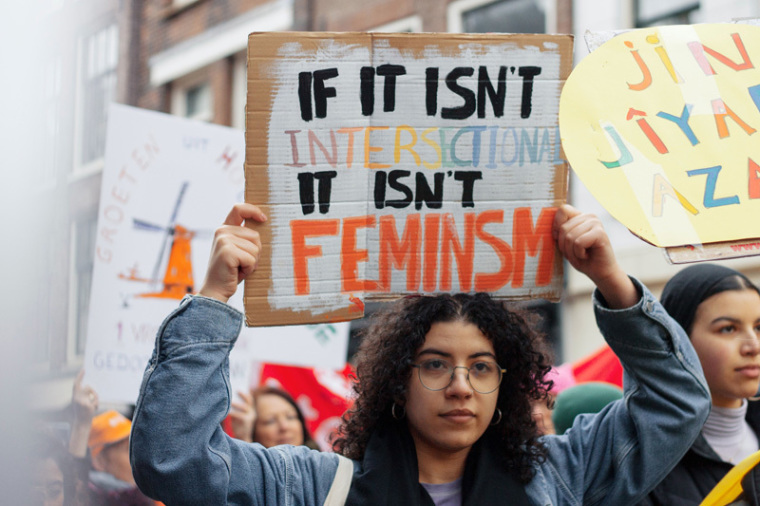
At this present moment in time, allegations of sexual misconduct by a staffer in Parliament House have reignited and further stoked the call for justice; and this is justified. However, I doubt this was the first time sexual misconduct has happened in parliament and it certainly won’t be the last we will hear regardless of the current tide of political unity, the number of marches and sweeping viral re-posting of social media ‘be better men’ speeches that follows.
However, what concerns me is how this real social-justice issue can become so easily hijacked by intersectionalists. Intersectionalists are fringe groups that feed off issues and opportunities to appear as champions of justice and heroes of the movement, but exist only to advance themselves.
On face value their noise impacts people and whether allegations prove true or not, the impact remains. It’s the emotionalization and emotive manipulation attached to these situations that also provoke a curious reaction from certain groups. It’s a simple equation that we’ve unknowingly accepted into our society and it goes like this:
When an individual commits a crime, the severity of the crime becomes more or less severe based on factors such as their gender, race, sexual orientation and religious beliefs. For example: a Christian footballer is fired for posting a Bible quote to a private social media account, whereas non-Christian footballers in the past have been welcomed back into the arms of the code, after being given a warning for sexual misconduct.
If the transgressor features more than two of these ‘factors’ the crime is then the responsibility of a group that becomes guilty as a whole. As in the case of Israel Falou, all-Christians were tared the same.
To be clear, we all should be the champions of equal rights: no man or woman, baby or foetus left behind. We all must be frank and fearless fighters of injustice, advocates for justice and call out human mistreatment and inequality when-ever and where-ever we find it.
But is this what’s happening here?
The protests of the last few years, well their words sound like it; their anger looks like it; and their calls for change and social unity, appear like it. But it makes me think, what stems from these social activism groups and what’s underlying it?
I say this not to provoke argument, but rather to lead discussion and inspire discernment when you hear the doctrine that modern opportunistic activists and organisations use in public to co-opt us to blindly agree and feed into their system and agenda. Let me explain.
You are oppressed
Allow me to describe a world to you: If your life is defined by the many things that might plague your abilities or life in general, you are a victim, and have value to society. The more oppressions you subscribe to will surely boost your social standing and make your opinion more important than those with less oppressive subscriptions.
If oppression is society’s currency, what will people begin looking for?
Martin Luther King Jr’s legacy left people parroting one of his most famous quotes from the ‘I Have a Dream’ speech. He said, “I have a dream that (my children) – will one day live in a nation where they will not be judged by the colour of their skin but by the content of their character.”
A simple interpretation would imply that the ideal society, the one God intends for us, is not one where people are judged for what they are, but who they are. Likewise, they shouldn’t be promoted for what they are, or the oppressions they subscribe to.
March 4 Justice?
The ‘March 4 Justice’ organisations’ diversity statement mentions that “Australia’s dominant patriarchal culture privileges the white, able-bodied, straight and wealthy.” The very implication of this message is the identification of a common enemy and a unification of the ‘oppressed’.
However, your value in society does not (or should not) be dependent on how oppressed you are. If we break down the case of George Floyd and remove the murderer’s race, gender etc. and what do we have? A murder problem, not a systemic racism problem.
The group identity has become more meaningful than the individual’s identity, and you can see this when protests take place. A protest can quickly turn into a violent display when individuals decide that ‘the group’ will take responsibility for their behaviour, and soon after start destroying property and setting buildings on fire.
Martyn Iles’ point
Martyn Iles points out that the mission statement of women’s March 4 Justice, includes the idea of having an intersectional mindset, which he says is a critical theory invention.
If you’re not familiar with the term, Intersectionality was coined by a professor, at Columbia University, Kimberle Crenshaw. In the words of Crenshaw, “Intersectionality is just a metaphor for understanding the ways in which inequality and disadvantage sometimes compound themselves.”
Prager U and Ben Shapiro define the theory as “A form of identity politics in which the value of your own opinion depends on how many victim groups you belong to.”
The Black Lives Matter movement and the women’s March 4 Justice share the same scent of an intersection of divisive Marxist agenda, where the individual’s value rests in the group. An extension of this theory highlights the division that would move society into a eutopia of equality, which is just a fancy way of saying unified oppression. Because no one is oppressed if we’re all equally oppressed.
Among the many plagues on our society, truth and authenticity is what’s missing in this generation of young people. The way people claim to love, the things they’re passionate about, has more to do with the image they want to project and less to do with their genuine convictions.
Supporting a social movement isn’t inherently a bad thing. In fact, it’s a defining element of living in a free and equitable society but having discernment and wisdom in circumstances of intense emotion will prevent us from becoming lost inside our own plight.

Jesse Moore draws from the Bible and classical literature for insight into life’s tough questions. He is currently studying at university to become a film-maker.
Jesse Moore’s previous articles can be viewed at: https://www.pressserviceinternational.org/jesse-moore.html